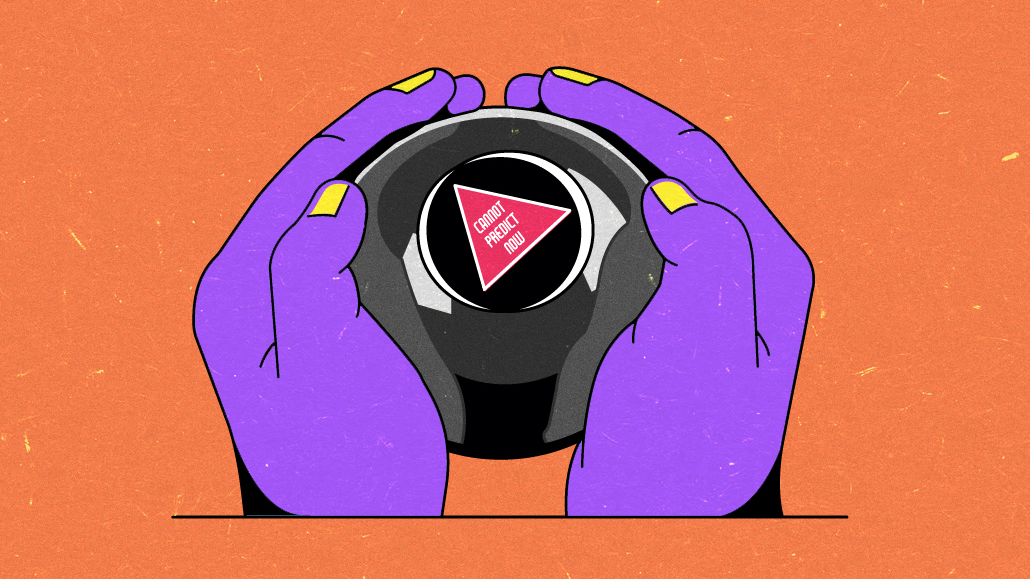Secure your place at the Digiday Media Buying Summit in Nashville, March 2-4

These days, everything is getting quieter. Employees check out in silence — quiet quitting. Companies nudge them out just as discreetly — quiet firing. And now, even the high-stakes theater of ad agency reviews has been muted. Advertisers are ditching the bloated pageantry of requests for proposals in favor of something more understated: no press, no pomp, just quiet deals behind closed doors.
Look at Coca-Cola. Its North America media review unfolded in near silence. Publicis Media secured the win, and only then did word get out. Now, Coca-Cola is ironing out the transition from GroupM, according to a source with direct knowledge of the process.
For some CMOs, this is the new playbook. The era of milking an agency review is fading. Now, discretion is the name of the game.
“There are a lot of heavily politicized issues out there and so clients are that much more reticent to draw attention to things that they might be doing,” said David Abramo, group director at Ebiquity, who is responsible for managing global pitches overseen by the media management firm.
In fairness, secrecy has always part of the pitch process, but never to this extent. Wins, losses and retentions used to play out in the open. Now more than ever, they’re happening in the shadows.
“There’s an increasing number of concluding pitches that are no longer publicized because clients are no longer interested in the PR generated by their decision,” said Olivier Gauthier, CEO at COMvergence, a global research firm specializing in tracking agency pitches. “And on the agency side, it’s because agencies have to handle an increasing number of conflicts as well and so would rather these things weren’t publicized.”
It’s tricky to say just how widespread this shift is. After all, by design, much of it is playing out away from the spotlight. But according to three separate pitch consultants who spoke with Digiday, more advertisers are insisting on strict confidentiality than ever before. And that, in itself, speaks volumes.
“We see more and more clients who choose to avoid seeking out the sort of attention or the proactive announcement of that process either at the beginning or the end of it,” said Abramo.
That doesn’t mean every pitch will follow this part — probably not even the majority. But, as Abramo pointed out, CMOs are more attuned than ever to the attention their decisions attract and the unintended consequences that come with it. For some, the headlines simply aren’t worth the scrutiny.
Especially when the decisions require a delicate touch, as was the case with Coca-Cola’s latest review. The company has a history with Publicis Groupe. It last worked with the holdco’s media team in North America in 2015 before switching to IPG after 12 years. Then, in 2021, Publicis nearly won the business back only to be edged out by WPP. It’s a back-and-forth that could make any marketer tread carefully.
Perhaps even more so given that this wasn’t a typical review. It was a showdown between the incumbent (GroupM) and a challenger (Publicis Media) at a time when both are navigating vastly different trajectories. Keeping the process quiet may not have just been in Coca-Cola’s best interest — it may have suited the holding companies as well.
“I’ve heard from both brands and providers that PR or permission to promote a win is negotiable, and increasingly brands deny permission,” said Forrester’s vp and principal agency analyst Jay Pattisall. “The rational behind their preference to not promote awarding assignments to agencies is a desire to focus resources of revenue generation and avoid the appearance of marketing as a cost center.”
At its core, this shift reflects how CMOs say they want to work with agencies: collaboratively, progressively and without unnecessary drama. In turn, they’re becoming more guarded about how they manage these relationships, particularly when they’re on shaky ground. Say too much, and they risk inviting unwanted scrutiny from competitors, the media and stakeholders. And when that happens, a simple review can spiral into a full-blown disruption fueled by speculation and rumor.
More in Marketing

Thrive Market’s Amina Pasha believes brands that focus on trust will win in an AI-first world
Amina Pasha, CMO at Thrive Market, believes building trust can help brands differentiate themselves.

Despite flight to fame, celeb talent isn’t as sure a bet as CMOs think
Brands are leaning more heavily on celebrity talent in advertising. Marketers see guaranteed wins in working with big names, but there are hidden risks.

With AI backlash building, marketers reconsider their approach
With AI hype giving way to skepticism, advertisers are reassessing how the technology fits into their workflows and brand positioning.








